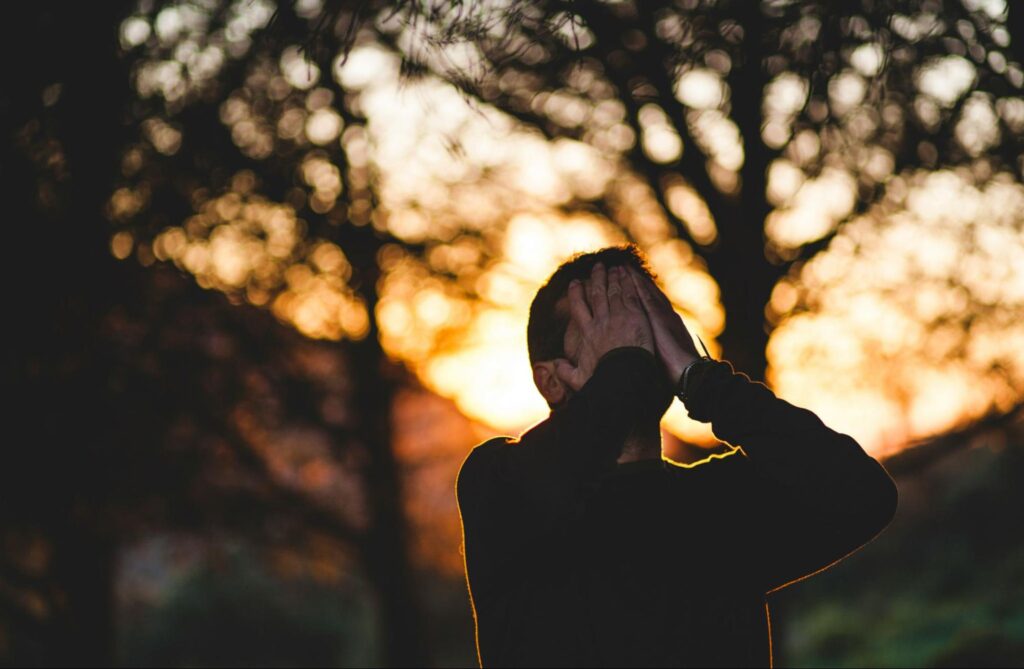Depression can feel overwhelming and isolating, leading many people to search for natural, accessible ways to improve their mental health. When traditional treatments don’t seem like enough, it’s natural to wonder: is camping good for depression?
Research shows that camping can have significant positive effects on depression, with studies indicating that spending just 120 minutes per week in nature can improve mental well-being and reduce symptoms of depression by up to 30%.
While this answer is encouraging, there’s more to consider before heading into the wilderness. Understanding exactly how camping helps with depression, what type of camping works best, and how to combine it with other treatments can make the difference between a helpful therapeutic experience and just another weekend getaway.
How Does Camping Help With Depression?
Camping offers multiple mechanisms that directly combat common symptoms of depression. Being in nature reduces levels of cortisol, the stress hormone, while increasing the production of serotonin and dopamine – neurotransmitters often lacking in people with depression. Natural light exposure during camping helps regulate circadian rhythms, which can improve sleep patterns and mood.
Physical activity associated with camping, such as hiking or setting up camp, provides natural exercise that releases endorphins. Additionally, the break from technology and urban environments reduces mental fatigue and allows the brain to recover from constant stimulation, a process scientists call “attention restoration.”
What Type Of Camping Is Most Beneficial For Depression?
While any form of camping can be helpful, evidence suggests that longer trips of 2-3 days in remote locations provide the most mental health benefits. This duration allows enough time to fully disconnect from daily stressors and establish a natural sleep-wake cycle aligned with sunrise and sunset.
Solo camping can offer valuable self-reflection time, but group camping provides social support and connection – crucial factors in managing depression. For beginners or those with severe depression, guided camping trips or camping with experienced friends may be the safest and most beneficial option. Those looking for structured experiences might want to search for “overnight summer camps near me” that offer therapeutic group activities and professional supervision.
How Can Camping Be Combined With Other Depression Treatments?
Camping should be viewed as a complementary approach to depression treatment rather than a standalone solution. It works well alongside traditional therapies, medication, and other lifestyle interventions. Some therapists even incorporate wilderness therapy into their treatment plans, combining professional mental health support with the benefits of outdoor experiences.
Discuss camping plans with your mental health provider, who can help integrate outdoor experiences into your treatment strategy. They may suggest specific activities to practice while camping, such as mindfulness exercises or journaling, to maximize the therapeutic benefits of your time in nature.
What Safety Precautions Should Depressed People Take When Camping?
While camping can be therapeutic, it’s essential to approach it mindfully when dealing with depression. Always inform someone trustworthy about your camping plans, including location and expected return date. Pack any prescribed medications and keep them in a waterproof container, bringing extra doses in case your trip extends unexpectedly.
It’s also crucial to pay attention to weather forecasts and choose camping dates with favorable conditions, as bad weather can potentially worsen mood. Starting with campgrounds that have basic amenities and are closer to civilization can provide a sense of security while you build confidence in your outdoor skills.
How Often Should Someone Go Camping To Help With Depression?
Research suggests that regular exposure to nature provides the most consistent mental health benefits. While monthly camping trips might be ideal, this isn’t always practical for everyone. Instead, aim for at least one camping trip every season, or every three months to maintain the positive effects on mood and mental well-being.
Between longer camping trips, try incorporating “micro-doses” of nature into your routine, such as day hikes or backyard camping. This helps maintain the connection with nature and its mental health benefits while making it easier to transition into longer camping experiences when possible.
Remember that consistency matters more than frequency – regular shorter trips can be more beneficial than occasional extended expeditions. The key is to make outdoor experiences a regular part of your life rather than a one-time solution.
Conclusion
If you’re considering using camping to help manage your depression, start small by planning a weekend camping trip at a well-maintained campground within an hour of your home. Talk to your mental health provider about your plans, and consider inviting a friend or family member who has camping experience to join you. This low-pressure introduction to camping will help you discover how nature affects your mood while ensuring you have the support and safety net you need.



 David Benefiel is a seasoned fitness professional and passionate writer for My Healthy Living and Strategies, where he focuses on delivering practical advice for maintaining a balanced and healthy lifestyle. With years of experience in strength training, nutrition, and holistic wellness, David offers in-depth guidance to help readers achieve their personal health goals, whether through tailored fitness plans, dietary changes, or mental wellness practices.
David Benefiel is a seasoned fitness professional and passionate writer for My Healthy Living and Strategies, where he focuses on delivering practical advice for maintaining a balanced and healthy lifestyle. With years of experience in strength training, nutrition, and holistic wellness, David offers in-depth guidance to help readers achieve their personal health goals, whether through tailored fitness plans, dietary changes, or mental wellness practices.